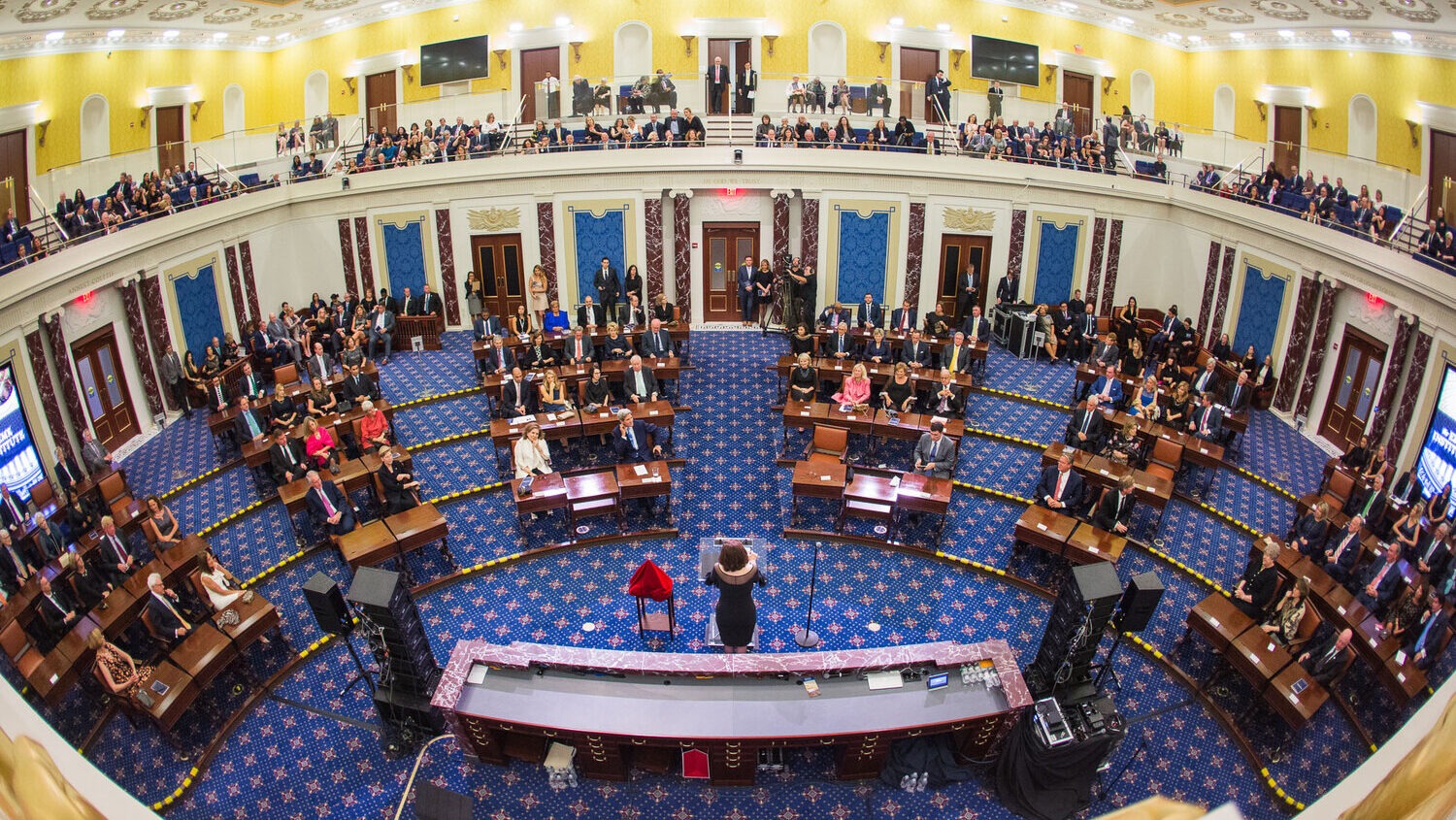On Monday evening, the Senate achieved a crucial milestone in advancing a $95.3 billion foreign aid bill, earmarked for Ukraine and Israel.
This paves the way for its likely approval in the Senate later this week, although uncertainties loom regarding its fate in the House of Representatives.
Speaker Mike Johnson’s vehement criticism of the package and the House Republicans’ resistance to additional aid for Ukraine indicate a challenging path for the bill.
The Senate has forged ahead despite former President Trump’s contention that the U.S. should only provide foreign aid in the form of loans, aligning his stance against the legislation.
Trump has further signaled a willingness to support Russian aggression against any NATO member failing to meet financial commitments.

US Senate (Credits: BNN Breaking)
In a statement, Speaker Johnson decried the bill’s absence of border provisions, asserting that the Senate should have revisited the proposal to include substantive border security measures to address the ongoing crisis.
Interestingly, Johnson had previously opposed a more comprehensive bill that did include border provisions, dismissing them as inadequate despite their bipartisan origin and stringent border measures.
Several Senate Republicans either defended or downplayed Trump’s comments on NATO, with Senator Tommy Tuberville expressing full support for Trump’s position.
Tuberville suggested that European allies should be apprehensive about potential invasions and advocated for their self-reliance rather than dependence on the U.S. for protection.
Senator Roger Marshall urged European allies to “get over it” if they were troubled by Trump’s remarks on NATO, emphasizing the need for them to stand firm and address their own concerns. Marshall highlighted the importance of securing the U.S. border and addressing domestic issues before extending assistance to others.
In the Senate, deliberations on the bill have progressed slowly, with no consensus on expediting its passage. Senator Rand Paul has vowed to prolong the timeline in protest, citing concerns about national debt.
Paul remains steadfast in his stance, stating he will persist until “hell freezes over” and is prepared to take the floor to discuss the dangers of increasing debt.
The Senate took a crucial vote on Sunday, advancing the package with a 67 to 27 tally, just hours before the Super Bowl. The comprehensive foreign aid package includes substantial allocations for Ukraine’s support against Russia, security assistance for Israel, and humanitarian aid for civilians in Gaza, the West Bank, and Ukraine.
This legislation comes into play after Republicans blocked a broader bill that would have combined foreign aid with a bipartisan border deal. Initially demanding border security inclusion, Republicans later rejected the bipartisan deal amid strong opposition from Trump and leading House Republicans.
Trump’s recent assertion on Truth Social, advocating for structuring foreign aid as loans, underscores the persistent political pressure faced by Republicans as they navigate the contentious issue of funding for U.S. allies.























